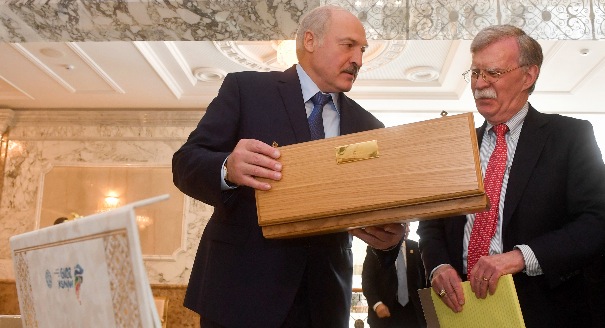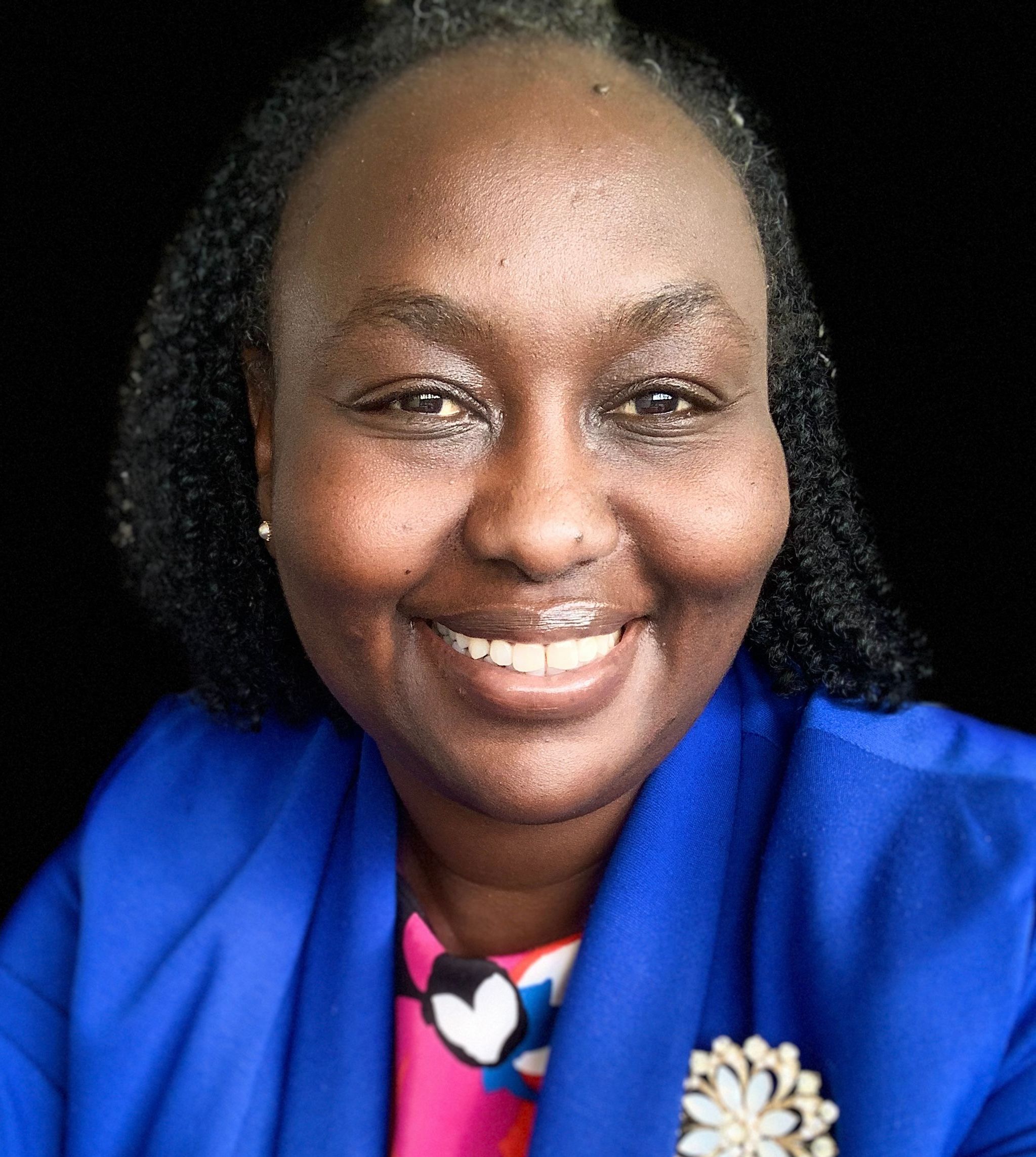It’s dangerous to dismiss Washington’s shambolic diplomacy out of hand.
Eric Ciaramella
{
"authors": [
"Artyom Shraibman"
],
"type": "commentary",
"centerAffiliationAll": "",
"centers": [
"Carnegie Endowment for International Peace",
"Carnegie Russia Eurasia Center"
],
"collections": [],
"englishNewsletterAll": "",
"nonEnglishNewsletterAll": "",
"primaryCenter": "Carnegie Endowment for International Peace",
"programAffiliation": "",
"programs": [],
"projects": [],
"regions": [],
"topics": []
}
Source: Getty
Both Belarusian officials and U.S. presidential adviser John Bolton were quick to put out the message that the visit was more about form than content. Bolton said openly that no issues had been resolved at the meeting, but that he had not expected otherwise. Belarusian Foreign Minister Vladimir Makei said that no one was enticing Minsk over to any side, and that the two sides had simply agreed to keep communicating.
Last week, U.S. President Donald Trump’s national security adviser John Bolton became the highest-ranking U.S. official to visit Belarus in more than twenty-five years. Bolton stopped in Minsk on August 29 after visiting Moldova and Ukraine, and was given a warm welcome by Belarusian President Alexander Lukashenko, who described the visit as “historic.” Bolton also met with his Belarusian, Polish, and Ukrainian counterparts in Warsaw over the weekend.
U.S. economic sanctions against both entities and individuals in Belarus were put in place following a 2004 referendum to remove limitations on Lukashenko’s time in power. Their gradual tightening through 2008 led to both countries recalling their ambassadors. With the start of a thaw in relations between Belarus and the West in 2015, when Belarus released its political prisoners, the United States suspended some of the sanctions. The countries began discussing the return of ambassadors, and the last barrier to this was removed at the start of 2019.
The perception of Belarus in Washington has changed in a very interesting way. Minsk’s problems in its relations with Moscow have not gone unnoticed, and at the end of last year, then assistant secretary of state for European and Eurasian affairs A. Wess Mitchell listed Belarus alongside Ukraine and Georgia as countries whose sovereignty was a “bulwark against Russian neo-imperialism.” In doing so, Washington acknowledged that it had a common interest with Minsk in its desire to stop Moscow expanding in Eastern Europe.
The issue of Belarusian sovereignty proved highly topical, given the recent talks about integration between Minsk and Moscow to form a union state, in which Western media almost unanimously saw a plan by Putin to subsume Belarus in order to remain in charge of a new country after 2024, when he is constitutionally barred from running again for the Russian presidency. In this sense, Bolton’s visit was a symbolic gesture of support, and an attempt to find out for himself what is on the minds of the Belarusian elite, and how prepared they really are to resist Russian pressure.
Bolton did not beat around the bush, saying that what the people of Belarus want should determine their relationship with Russia, and that his impression was that Belarusians want independence. This could be termed the “Crimea proviso”: the United States is announcing publicly that it will not buy the version that Belarusians are unanimously desperate to become part of Russia, just in case anyone should wish to use that argument to justify depriving Minsk of its sovereignty.
Two other key issues that were mentioned by both Bolton and Minsk were China and nonproliferation. It’s no secret that the Trump administration considers China, not Russia, to be its main enemy. In Kiev, too, Bolton tried to persuade the Ukrainians not to sell the Motor Sich aviation plant to China.
Belarus’s trade turnover with China is ten times smaller than that with Russia, and is also miserly compared to Belarusian-European cooperation. In addition, Chinese projects in Belarus have been plagued by scandal: either construction is delayed, or a project elicits ecological protests, or it results in accusations of industrial sabotage and investment contracts being breached.
China is simply on the agenda of Bolton’s tour of the region. The task was to plant flags and hint to the local elites that Washington would not be pleased to see the countries providing a bridgehead for Chinese expansion into Europe.
Bolton also said he had raised the “significant issue” with Lukashenko of nonproliferation. This prompted some speculation in Belarus, since the national security adviser did not clarify what exactly he meant, giving rise to two interpretations.
The first version is that Bolton was referring to the delivery or planned delivery of weapons from Belarus to enemies of the United States, such as Iran or Syria. The alternative version is that Bolton wanted to be sure that following the collapse of the Intermediate-Range Nuclear Forces Treaty, or in light of U.S. plans to increase the country’s military presence in Poland, Belarus will not allow new Russian military equipment or troops onto its territory. For now, unfortunately, only the meeting’s participants know which of these versions is the right one (they might even both be correct).
Another topic that certainly came up at the meeting is talks on ending the Ukraine conflict. Minsk not only wants to continue to host the talks: for five years now it has been calling on the United States to join the Normandy format, which consists of Ukraine, Russia, France, and Germany.
It’s not yet known what the specific plans are regarding peace talks, but Lukashenko is unlikely to have passed up the opportunity to please Bolton—a long-time supporter of U.S. intervention around the world—by telling him that it’s not possible to resolve the Ukraine crisis without Washington.
Both Belarusian officials and Bolton were quick to put out the message that the visit was more about form than content. Bolton said openly that no issues had been resolved at the meeting, but that he had not expected otherwise. Belarusian Foreign Minister Vladimir Makei gave a separate statement saying that no one was enticing Minsk over to any side, and that the two sides had simply agreed to keep communicating.
Russian President Vladimir Putin’s spokesman Dmitry Peskov said, with a dollop of sarcasm, that “on the subject of close cooperation between Belarus and the United States, it seems there is no need to comment right now,” and, ultimately, he is right. Neither military nor serious political cooperation between Minsk and Washington is possible because of Belarus’s obligations to its ally Russia.
Problems also remain over the human rights situation in Belarus, and continuing U.S. sanctions. The latter can only be lifted completely by Congress, which will not do so under Lukashenko unless radical changes take place in Belarus. The president himself, along with his older sons and entourage, is still on a blacklist barring him from traveling to the United States.
On the possible lifting of sanctions, Bolton said that the issue would have to be discussed with regard to human rights and nonproliferation, and warned that it would be a lengthy discussion.
In economic terms, the United States plays too small a role in Belarus to help counterbalance the country’s dependence on Russia. Ahead of Bolton’s visit, it became known that Minsk had hired a lobbyist in Washington to secure the lifting of sanctions on exporting U.S. crude oil to Belarus. But until Russia’s so-called tax maneuver is completed in 2024, virtually any other oil will be more expensive for Minsk, especially taking into account the hazy delivery logistics.
The most pressing issue on the agenda is that of restoring the normal work of the diplomatic missions, complete with ambassadors. But this is neither Bolton’s level nor his area of responsibility, and in any case, the issue has already been resolved at a political level. The most the visit could do in this respect is to help officials from the State Department working on the issue to speed up bureaucratic procedures as a result of Belarus getting some attention at the very top.
The meeting with Bolton, coming as it did on the eve of Lukashenko’s sixty-fifth birthday, was a nice gift for the Belarusian leader, who still feels a little isolated, and so receives any high-ranking Western guest particularly warmly.
The visit of Trump’s national security adviser will go down in Belarusian history as a symbol of the United States’ new attitude to the country and the region as a whole. But those who interpret this introductory visit as anything bigger—either with trepidation or in hope— are mistaken.
Carnegie does not take institutional positions on public policy issues; the views represented herein are those of the author(s) and do not necessarily reflect the views of Carnegie, its staff, or its trustees.
It’s dangerous to dismiss Washington’s shambolic diplomacy out of hand.

Eric Ciaramella
The India AI Impact Summit offers a timely opportunity to experiment with and formalize new models of cooperation.


Lakshmee Sharma, Jane Munga
EU member states clash over how to boost the union’s competitiveness: Some want to favor European industries in public procurement, while others worry this could deter foreign investment. So, can the EU simultaneously attract global capital and reduce dependencies?

Rym Momtaz, ed.
Europe’s policy of subservience to the Trump administration has failed. For Washington to take the EU seriously, its leaders now need to combine engagement with robust pushback.

Stefan Lehne
Leaning into a multispeed Europe that includes the UK is the way Europeans don’t get relegated to suffering what they must, while the mighty United States and China do what they want.

Rym Momtaz